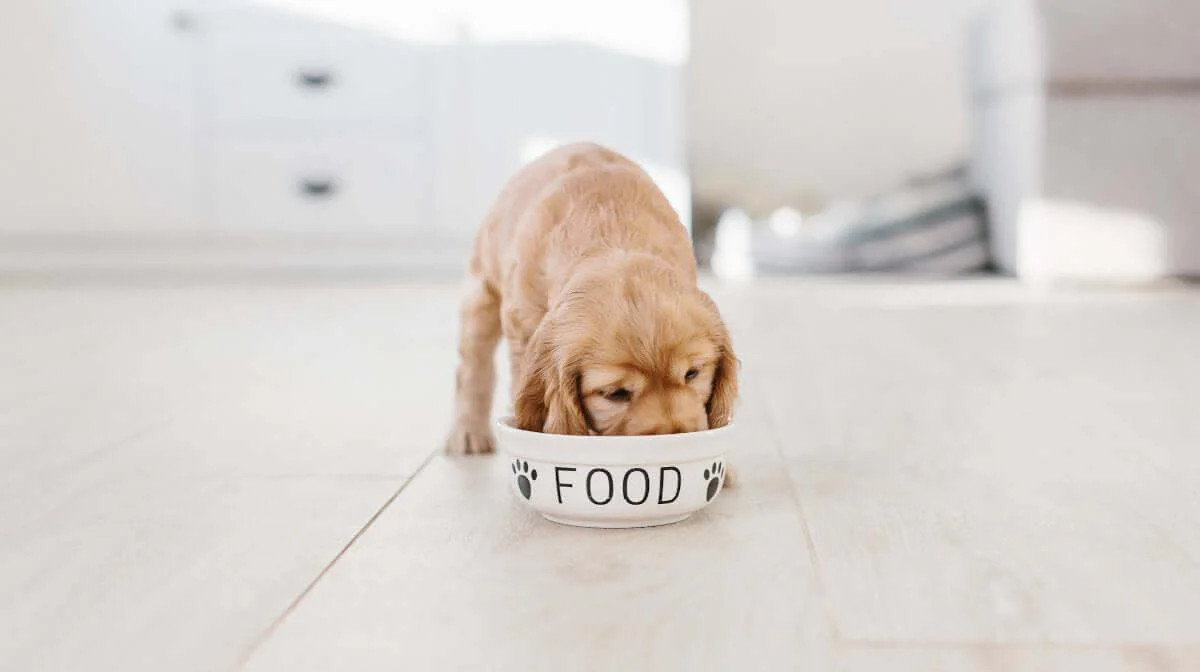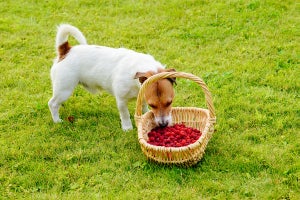
For first-time puppy owners, there’s certainly lots to consider when it comes to looking after your new furry friend. As well as toys, exercise, beds and collars, one of the most important factors of being a pet owner is selecting a high-quality and nutritionally balanced puppy food to ensure they grow and develop properly as they get older. In this article, James Wellbeloved investigate the best dog food for puppies and answer some of the most common questions when it comes to puppy feeding.
Is puppy food different to dog food?
A common misconception linked to dog food is that it’s suitable for all stages of a dog’s life. In fact, dogs require different nutrients at each life stage; puppies should therefore always be given a specially formulated food that meets all their nutritional needs. Adult dog food may not contain the right balance of nutrients and feeding it to your pup could mean they don’t develop properly as a result. Puppy kibble are also a more suitable size for puppies’ smaller mouths.
What is the best dog food for puppies?
Puppies are weaned off their mother’s milk at around six weeks of age, after which they can start eating solid food. There are many different types of puppy diet available, including wet and dry food, grain-free, and even food for different breeds. Each has its own advantages; for example, wet food is believed to be more palatable and easier to chew, whereas dry food helps develop strong teeth and gums. Often dog owners choose to give their puppy a mix of dry and wet foods.
Puppy food typically contains meat or fish, rice, vegetables and grains. Grains can contribute to a healthy and balanced diet for dogs. How much you feed your puppy will depend on their age and size, but you can follow this useful guide for a rough idea.
As long as your puppy’s food contains all the nutrients they need, the choice is up to you. If you are uncertain about any of the ingredients in a specific type of dog food, you can ask a vet for advice. Sometimes puppies like certain flavours or textures – you could try a couple out with your puppy to see what they like best. Puppies don’t necessarily need variety in their diet, but some may need it to keep them interested. However, bear in mind that any adjustments to your puppy’s diet should be made slowly over an extended period, as sudden changes to a dog’s diet can cause an upset tummy. If your puppy likes a certain food, stick with it.
What else can puppies eat?
Aside from their usual puppy food, you may also wish to give your dog some puppy treats. Take care not to overfeed treats, as this can lead to weight gain. Portion off the equivalent of your puppy’s daily diet to prevent overfeeding. James Wellbeloved recommend no more than 10% of a pet’s daily food be made up of treats.
Puppies – and adult dogs – should never be given nuts, chocolate, garlic, some fruit or other human foods, as these can be toxic and even potentially fatal. Although it may be tempting to give your puppy human titbits, consider the consequences this could have for their health – sticking to special puppy food is best. A healthy puppy diet should always be balanced out with plenty of exercise and playtime. Be sure to keep an eye on your puppy’s weight and take them to the vet if you think there may be any problems with their diet.









